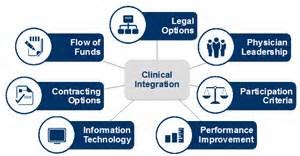The healthcare industry is on the cusp of a technological revolution, with innovative solutions reshaping:
- patient care
- medical procedures
- healthcare management
As we look toward 2025, five key information technology trends are poised to transform the healthcare landscape, promising improved patient outcomes, enhanced efficiency, and more personalized care.
5 Key Technology Trends Poised to Reshape Healthcare in 2025
1. Artificial Intelligence and Machine Learning: The New Frontier in Healthcare
Artificial intelligence (AI) and machine learning (ML) are rapidly becoming integral components of modern healthcare systems. These technologies are revolutionizing diagnostics, treatment planning, and operational efficiency across the medical field.
In diagnostics, AI algorithms are proving to be powerful tools for analyzing complex medical imaging data. These systems can detect early signs of diseases like cancer with remarkable speed and accuracy, often surpassing human capabilities. For instance, machine learning models are being used to scrutinize mammograms, potentially reducing unnecessary biopsies, and improving early detection rates.
AI is also making significant strides in personalized medicine. By analyzing vast amounts of patient data, including genetic information, lifestyle factors, and medical history, AI systems can help physicians develop tailored treatment plans. This approach not only improves the effectiveness of treatments but also minimizes potential side effects.
In hospital settings, AI is streamlining operations and enhancing patient care. Virtual healthcare assistants, powered by AI, provide 24/7 patient support, answering queries, scheduling appointments, and even offering personalized health advice based on patient history and symptoms. These assistants are proving invaluable in managing chronic diseases and bridging the gap between doctor visits.
For healthcare professionals, AI is alleviating administrative burdens, allowing them to focus more on direct patient care. From automating routine tasks to assisting in complex decision-making processes, AI is enhancing the efficiency and accuracy of healthcare delivery.
What Are the Economic Impacts Of Enabling Artificial Intelligence and Machine Learning in Healthcare?
- Enhanced diagnostic accuracy can potentially reduce unnecessary procedures and associated costs.
- Streamlined operations and automation of administrative tasks can lead to cost savings for healthcare providers.
- Improving personalized medicine can potentially increase treatment effectiveness thereby reducing long-term healthcare costs.
2. Telemedicine and Remote Patient Monitoring: Redefining Access to Care
The COVID-19 pandemic accelerated the adoption of telemedicine, and its benefits have ensured its place as a permanent fixture in healthcare delivery. Telemedicine is revolutionizing patient-provider interactions by enabling remote care through digital platforms such as video calls, phone consultations, and secure messaging systems.
This shift has significantly improved access to healthcare, especially for patients in rural or underserved areas. Telemedicine eliminates geographical barriers and reduces the need for in-person visits for non-emergency issues. It offers a convenient and cost-effective alternative to traditional doctor appointments.
Remote patient monitoring, an extension of telemedicine, is further transforming chronic disease management. Wearable devices and IoT-powered sensors allow healthcare providers to track patients’ vital signs and health metrics in real-time. This enables proactive interventions and reduces hospital readmissions.
The integration of AI with telemedicine is further enhancing its capabilities. AI-powered symptom checker chatbots, for example, can provide instant feedback to patients, helping with triage cases and reducing the load on clinical staff.
What Are the Economic Impacts Of Telemedicine and Remote Patient Monitoring?
- Telemedicine visits cost $41-$49, compared to $358-$1595 for emergency department visits and $98-$163 for urgent care visits.
- Net cost savings per telemedicine visit for patients ranged between $19-$121.
- Remote patient monitoring using IoT health devices could have an economic impact of up to $1.6 trillion per year by 2025.
3. Internet of Medical Things (IoMT): Connected Healthcare
The Internet of Medical Things (IoMT) is creating a network of interconnected medical devices and applications that are revolutionizing healthcare delivery. This trend encompasses a wide range of devices, from wearable health trackers to smart pills and connected medical equipment.
Wearable devices are at the forefront of this trend, enabling continuous monitoring of vital signs, activity levels, and even specific health conditions. These devices are empowering patients to take a more active role in managing their health while providing healthcare providers with a wealth of real-time data for more informed decision-making.
In hospital settings, IoMT is enhancing patient care and operational efficiency. Connected medical devices can automatically update patient records, monitor equipment status, and even predict maintenance needs, reducing downtime and improving patient safety.
The integration of IoMT with AI and big data analytics is opening new possibilities for predictive healthcare. By analyzing data from multiple sources, healthcare providers can identify potential health issues before they become serious, enabling early intervention and preventive care.
What Are the Economic Impacts Of IoMT?
- IoMT can reduce healthcare costs by eliminating traditional medical appointments and significant wait times.
- Goldman Sachs estimates that annual healthcare costs will be reduced by $300 billion annually using Remote Patient Monitoring.
4. Augmented and Virtual Reality: Transforming Medical Training and Patient Care
Augmented reality (AR) and virtual reality (VR) are emerging as powerful tools in healthcare. Applications for these technologies range from medical training to patient treatment.
In surgical settings, AR is providing surgeons with real-time, 3D visualizations of patient anatomy during procedures. This technology allows for more precise incisions and reduces the risks associated with invasive surgeries.
Medical education is being revolutionized by VR, offering students immersive, hands-on training experiences without the risks associated with practicing on real patients. These simulations can replicate a wide range of medical scenarios, helping students develop critical skills in a safe, controlled environment.
For patients, VR is proving to be an effective tool for pain management and mental health treatment. Virtual reality experiences can distract patients from pain or anxiety. They can also provide therapeutic environments for conditions such as PTSD or phobias.
What Are the Economic Impacts Of Utilizing Augmented and Virtual Reality in the Healthcare Industry?
- Improving surgical precision has the potential to reduce complications and associated costs.
- VR-enhanced medical training could result in more cost-effective education for healthcare professionals.
- Offering alternative therapies for pain management and mental health can potentially reduce medication costs and facility admission rates.
5. Blockchain: Enhancing Data Security and Interoperability
Blockchain technology is addressing some of healthcare’s most pressing challenges: data security, interoperability, and patient data ownership.
In an industry where data breaches can have severe consequences, blockchain offers a secure, decentralized system for storing and sharing medical records. This technology ensures that patient data remains tamper-proof and can only be accessed by authorized parties.
Interoperability, a long-standing issue in healthcare, is being tackled through blockchain-based solutions. These systems allow for seamless sharing of patient data across different healthcare providers and institutions, ensuring that critical information is always available when needed.
Moreover, blockchain is empowering patients by giving them greater control over their health data. Patients can decide who has access to their records and can easily share their complete medical history with new healthcare providers.
What Are the Economic Impacts Of Using Blockchain in the Medical Field?
- Reduced costs associated with data breaches and cybersecurity incidents.
- Improved efficiency in sharing patient data across healthcare providers, potentially lowering administrative costs.
Looking Ahead
As we stand on the brink of a new era in healthcare, these five IT trends promise to revolutionize the industry, offering a glimpse into a future where care is more accessible, personalized, and efficient. The economic implications are profound, with potential cost savings in the billions and new market opportunities emerging rapidly.
However, the path forward is not without challenges. As healthcare organizations navigate this digital transformation, they must balance innovation with patient privacy, data security, and equitable access to these technologies. The regulatory landscape will need to evolve to keep pace with these advancements, ensuring that the benefits of these technologies are realized without compromising patient safety or trust.
The success of these trends will depend on collaboration between healthcare providers, technology companies, policymakers, and patients. As we navigate 2025 and beyond, the integration of AI, telemedicine, IoMT, AR/VR, and blockchain into healthcare systems will not just be about adopting new technologies—it will be about reimagining healthcare delivery itself.
The future of healthcare is digital, data-driven, and deeply human-centered. By embracing these trends responsibly and thoughtfully, we have the opportunity to create and participate in a healthcare system that is not only more efficient and cost-effective but also more compassionate and accessible to all.





